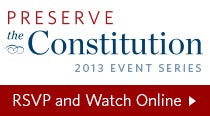Obamacare Anti-Conscience HHS Mandate Reaches the Supreme Court
Sarah Torre / Elizabeth Slattery /
As the House prepares to vote on defunding Obamacare, citizens are challenging the Obama Administration to defend a part of the law that has already gone into effect: the anti-conscience mandate. Earlier today, five members of the Hahn family, who run Conestoga Wood Specialties, took their fight against the coercive mandate to the Supreme Court.
Conestoga is a kitchen cabinet manufacturer in Pennsylvania employing 950 individuals. Its owners, the Hahns, run their family business according to their Mennonite faith, including offering an employee health plan aligned with those values. Under the Obamacare mandate, however, the Hahns are forced to provide and pay for coverage of abortion-inducing drugs—despite the family’s religious objections. Conestoga Wood could face fines of up to $95,000 per day for sticking to their deeply held beliefs and not complying with the mandate.
The Hahns sued to stop the implementation of the mandate, arguing that it violates the Free Exercise Clause of the First Amendment as well as the Religious Freedom Restoration Act (RFRA), which requires that government action “not substantially burden a person’s exercise of religion even if the burden results from a rule of general applicability.” RFRA does not define who and what entities qualify as a “person”—and that is precisely the question before the Supreme Court: Does a for-profit business count as a “person” under RFRA and the Free Exercise Clause?
In July, the U.S. Court of Appeals for the Third Circuit denied the Hahns’ request for a temporary halt to the mandate, finding that for-profit businesses are “artificial being[s], invisible, intangible, and existing only in contemplation of law” and could not exercise “an inherently ‘human’ right’” like the free exercise of religion. Earlier this week, the Sixth Circuit agreed.
These rulings are at odds with an earlier en banc decision by the Tenth Circuit, which determined that for-profit businesses can engage in religious exercise—just like an individual can. The court noted that free exercise “strongly connote[s] action” and extends “beyond the walls of a church…to religiously motivated conduct as well as religious belief.” Surely a kosher butcher should not have to abide by a regulation mandating non-kosher butchering practices. The Tenth Circuit concluded that there is “no reason” to grant constitutional protection for a business’s political expression but deny such protection for religious expression. The government has asked the Supreme Court to review this case.
This disagreement among the federal appellate courts—as well as the competing petitions filed at the Court today—strongly increases the likelihood that the Supreme Court will grant review of one of the cases challenging the mandate during its upcoming term, which begins in October.
The Hahn family, along with more than 200 other plaintiffs challenging the coercive Obamacare mandate, remains hopeful that the Supreme Court will respect the First Amendment and all Americans’ ability to live and work in accordance with their faith.
Join us live this fall for The Heritage Foundation’s annual Preserve the Constitution series, which brings together the leading voices in law in and policy. Click below for more details:

